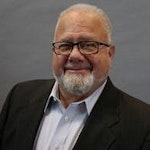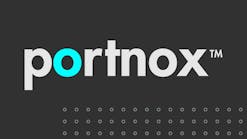When ACRE (Access Control Related Enterprises), the financial holding company that owns Vanderbilt, a global provider of state-of-the-art security products and systems encompassing access control, intrusion detection and video management, and ComNet, a U.S.-based manufacturer of audio, video, data and Ethernet communication products, made the move to acquire Texas-based Open Options last week, it solidified the company’s strategic plans for strengthening its access control product offerings and extending its portfolio.
But for ACRE CEO Joseph Grillo, the move follows the natural progression of security market consolidation and his vision of technology expansion. The acquisition of Open Options increases ACRE’s profile in the access control tech sector providing it with a well-established open-architecture solution and a large national customer base.
“The access control business, or maybe I should say market segment, within the security manufacturing industry, has always been highly fragmented,” says Grillo, who adds that he and his team regularly walk the industry shows and monitor their many contacts from years in the security market to assess potential target acquisitions and to keep tabs on the pulse of change. “A lot of the companies will probably look to where's the future, where's the opportunity for growth with limited resources, and it stands to reason it is through consolidation. The (recent) acquisition of S2 by UTC/Lenel was a big deal – much bigger than what we just did. But it proves that consolidation will continue, and we'll continue to be part of that.”
Staying Current with Technology
Grillo predicts that the trends that are driving the industry are going to stay on a consistent track with greater use of mobile apps and the ever-increasing use of wireless locks.
“There's so many wireless locks and so many versions. And the lock manufacturers keep coming out with new product sets. If you're going to be truly international, it's not just Allegion and Assa Abloy, you've got to deal with Salto and Siemens and Bosch. So, I think we have opportunities to leverage size and economies of scale while continuing to help consolidate the industry,” Grillo says.
Possessing an open architecture access control option and its recent sale of Mercury Security Products to HID Global also created the optimum environment to make the move with Open Options according to Grillo.
“The open (systems) trend is also there, and we now become a much bigger partner to Mercury as well. When we owned Mercury, it would have been strategically more difficult to buy a Mercury-based company because what we were previously trying to do was buy non-Mercury-based companies and switch them over. Now that we no longer own Mercury, it is much more viable for us to have a great partnership with them, and we want to continue to leverage that,” stresses Grillo.
Since its inception in 1997, Open Option has prided itself on being an independent and innovative force in the open-platform access control systems market. Founder and CEO Steve Fischer and his team built a long-term approach to their technology solutions and a close working relationship with their channel partners. And Open Options’ Vice President of Marketing and Communication Brent Doherty admits that it has never been the company’s goal to sell to a large corporate entity, although opportunities had arisen. For Fischer, it was a matter of timing and the right fit, and Doherty says that ACRE was the right company at the right time.
“ACRE, in this case, is the right buyer. They're not a giant corporate structure that wants to make Open Options something that we're not. They want us to continue to do what we've done for the last 20 years and take care of our customers and preach the open-architecture message. And that's what we're going to continue to do, and that's what we've done this whole time, and it's worked well for us,” says Doherty. “I don't really see a lot changing in the short-term, in terms of the company. I think we're going to look the same and the brand's staying in place. I think it’s all positive that we will be bringing in new expertise and new resources. We will just continue to grow and prosper and help our customers who interact with control solutions.”
When asked how Open Option solutions like its DNA Fusion product will mesh with the Vanderbilt access control line, Doherty says that the two will remain separate solutions and Open Options plans to remain a Platinum Elite hardware partner of Mercury Security as it has been for the past two decades. “We're one of their biggest partners in terms of that end of the business, so that revenue, along with a lot of other things that we do with them is not going to change.”
No Holding Pattern Here
Nor does Grillo want it to.
“Vanderbilt, while it had a history of being proprietary, has over the past two to three years integrated the Mercury product line into its protocol. In fact, I was at Vanderbilt a week or so ago, and they were talking about their first-ever Lenel takeover. That's something they were quite proud of,” boasts Grillo. “I think while Open Options has always professed and had that (open-architecture) as part of the DNA, we recognize the benefit of moving in that direction across the rest of the company as well.
“As you know, ACRE's been an acquisitive company from the beginning. This is our sixth acquisition since 2012. Part of our investment thesis, if you will, is ACRE operates a bit like a holding company. ACRE is not a brand and acquisitions like this are done to fill out our portfolio. One of the big keys in this move was to get a more geographic balance and expand our North American market. This helped solve that problem for us,” explains Grillo. “The timing was right for us. We like the growth, we like the profitability, we like the positioning as an open solution, and we'll continue to let the business run independently on its own and let it continue doing what it's been doing.”
While Grillo admits acquisitions like Open Options keeps the holding company true to its core technology sector of access control, there is no aversion to spreading outside that EAC shell if it makes sense to the rest of the business. Case in point was the ComNet purchase in October of 2016.
“We purchased ComNet despite them not being in the access control business. The fact that they sell to end-graders and wholesale distributors like ADI made it a target for us. That's an important channel in our industry that we can perhaps leverage it with our access control product. So, we'll always look at related products,” Grillo stresses. “To me, it's a channel play. If it's sold through the same channel, we'll look at it – even its video-related. Globally we manufacture something like $12 million to $15 million worth of cards and readers coming out of the Siemens acquisition. So, I think we'll look at anything that fits and is sold through the same channel. However, our primary focus will continue to be the core access control because we are a ‘business of software and control panels.’”
About the author: Steve Lasky is the Editorial Director of SecurityInfoWatch.com Media Group and Editor of Security Technology Executive magazine. He is a 32-year veteran of the security industry and former member of the ASIS International Physical Security Technology committee. He can be contacted at [email protected].




